'Tetrarchy' means the government of four people, and was a system introduced in 293 AD by Roman Emperor Diocletian.
Under the Tetrachy, the sovereignty of the Roman Empire was divided amongst four people; two Augusti or 'Senior Emperors' and two Caesars or 'Junior Emperors'. The four emperors based themselves not in Rome, but in cities closer to the frontier, from which they could each oversee and protect a part of the Empire.
Unfortunately, the system was too naive - when Diocletians & Maximian's reigns were up they abdicated, but the next set of Augusti were less concerned with upholding the system and soon the Tetrarchs were at each other's throats.
By 313 AD, most of the Tetrarchs and claimants were dead, and by 324 the empire was once again united under Constantine the Great.
Under the Tetrachy, the sovereignty of the Roman Empire was divided amongst four people; two Augusti or 'Senior Emperors' and two Caesars or 'Junior Emperors'. The four emperors based themselves not in Rome, but in cities closer to the frontier, from which they could each oversee and protect a part of the Empire.
Unfortunately, the system was too naive - when Diocletians & Maximian's reigns were up they abdicated, but the next set of Augusti were less concerned with upholding the system and soon the Tetrarchs were at each other's throats.
By 313 AD, most of the Tetrarchs and claimants were dead, and by 324 the empire was once again united under Constantine the Great.
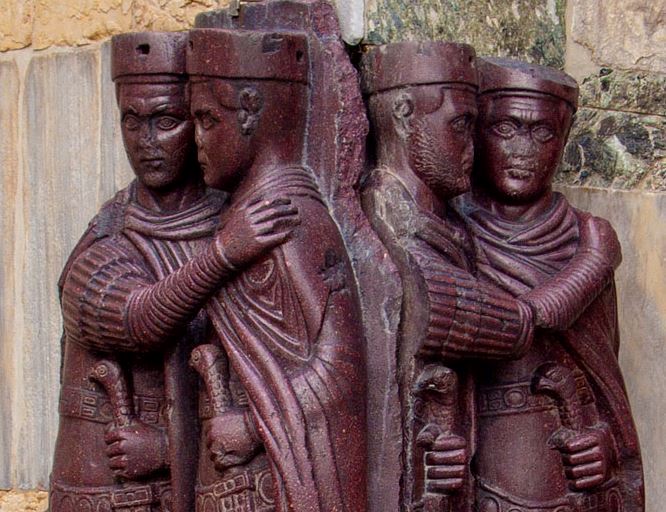
(1)
Constantius I
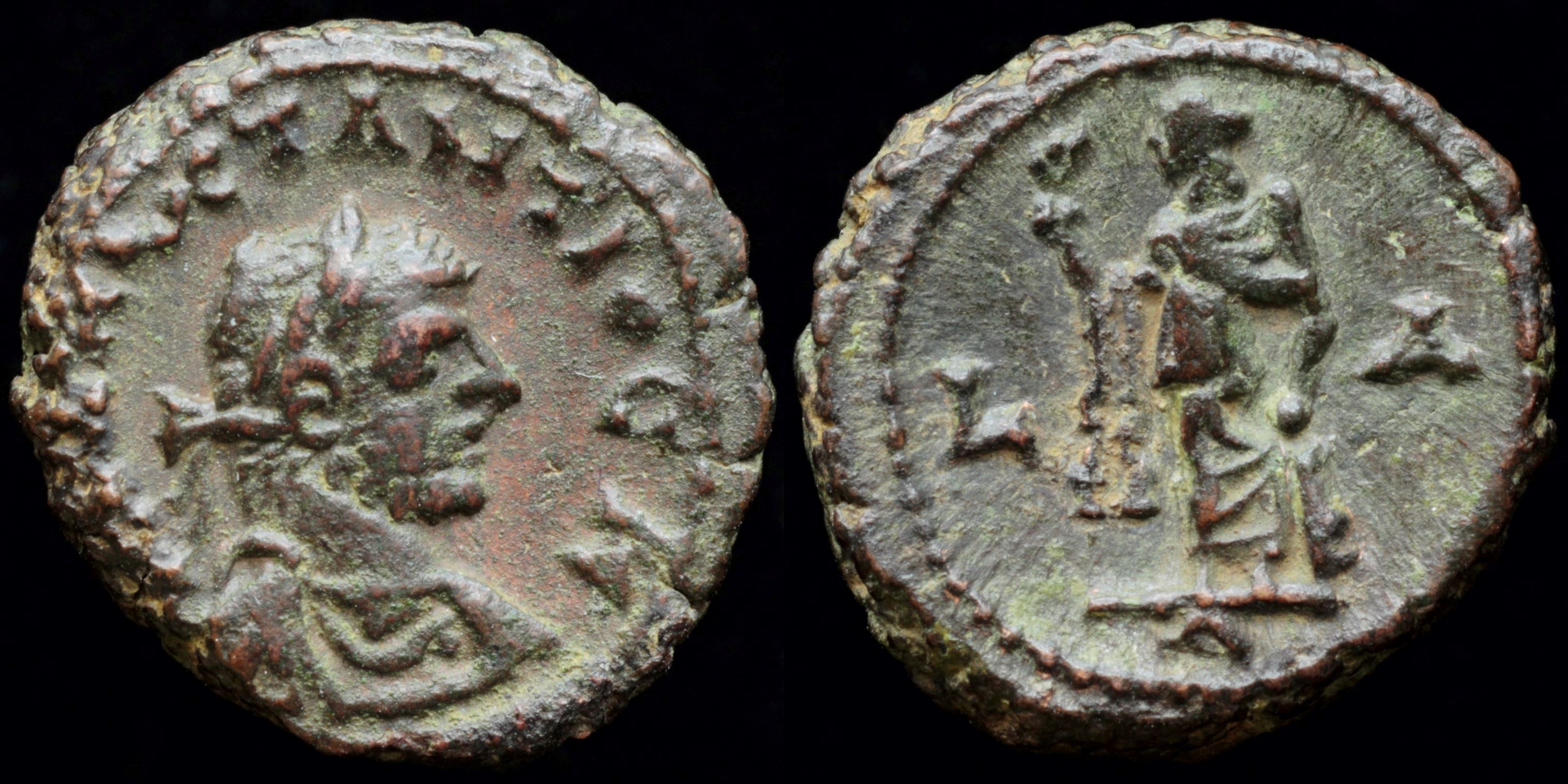
An
BL
Tetradrachm
struck 293 AD
in
Alexandria
Obverse: laureate, draped and cuirassed bust right; ΦΛA KWCTANTIOC K
Reverse: Elpis standing left, holding flower and raising skirt; L_A / A
Diameter:
18 mm
Die Orientation: -
Weight: 7.8 g
Die Orientation: -
Weight: 7.8 g
1 Mar 293 - 28 Aug 293 AD
Geissen 3347; Milne 5089; Dattari 6049; Emmett 4185 (R3); Kampmann-Ganschow 121.6
(2)
Diocletian
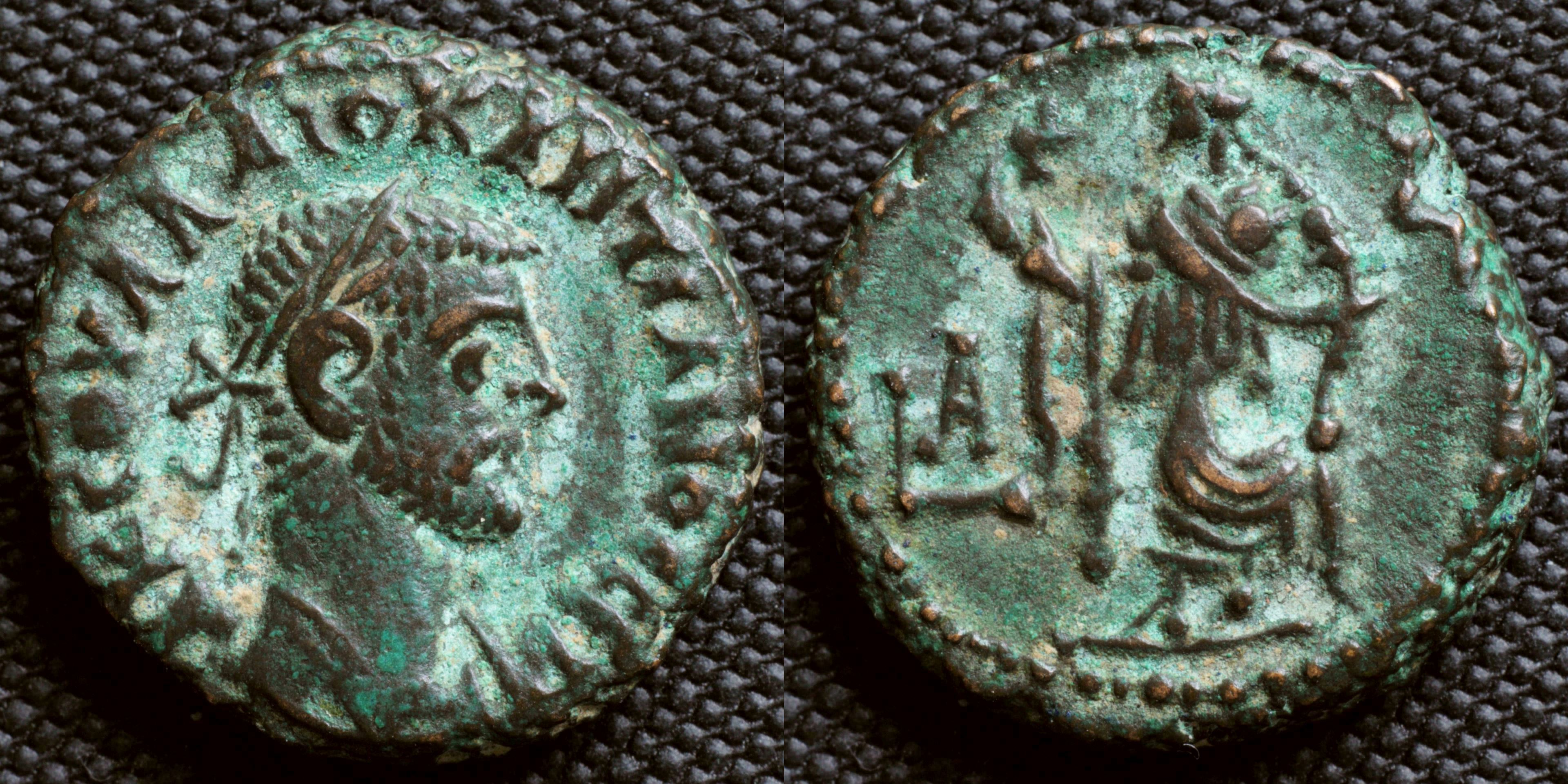
An
BL
Tetradrachm
struck 284-285 AD
in
Alexandria
Obverse: laureate, draped bust right; A K Γ OYAΛ ΔIOKΛHTIANOC CEB
Reverse: Elpis standing left, holding flower and raising skirt; LA
Diameter:
19 mm
Die Orientation: -
Weight: 7.12 g
Die Orientation: -
Weight: 7.12 g
Nov 284 - 28 Aug 285 AD
Milne 4750; Curtis 1980; Geissen 3202; SNG Cop 968; Emmett 4046; BMC Alexandria p. 323, 2499 var
(3)
Diocletian
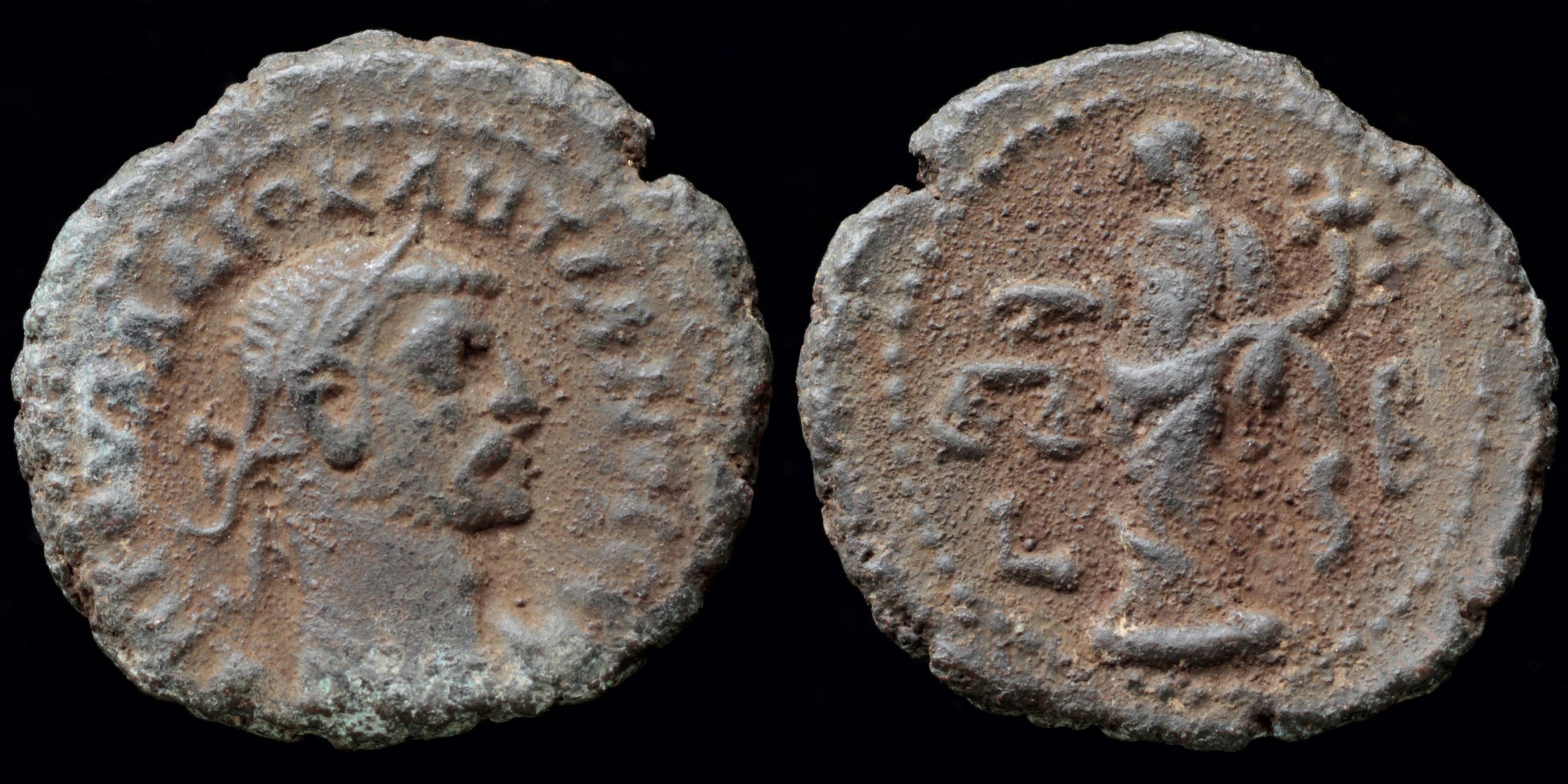
An
BL
Tetradrachm
struck 285-286 AD
in
Alexandria
Obverse: laureate and cuirassed bust right; A K Γ OYAΛ ΔIOKΛHTIANOC CEB
Reverse: Dikaiosyne (Aequitas) standing half left, holding scales and cornucopia; L_B
Diameter:
21 mm
Die Orientation: -
Weight: 7.3 g
Die Orientation: -
Weight: 7.3 g
29 Aug 285 - 28 Aug 286 AD
Milne 4770; Curtis 1967; Dattari 5645; SNG Cop 978
(4)
Diocletian
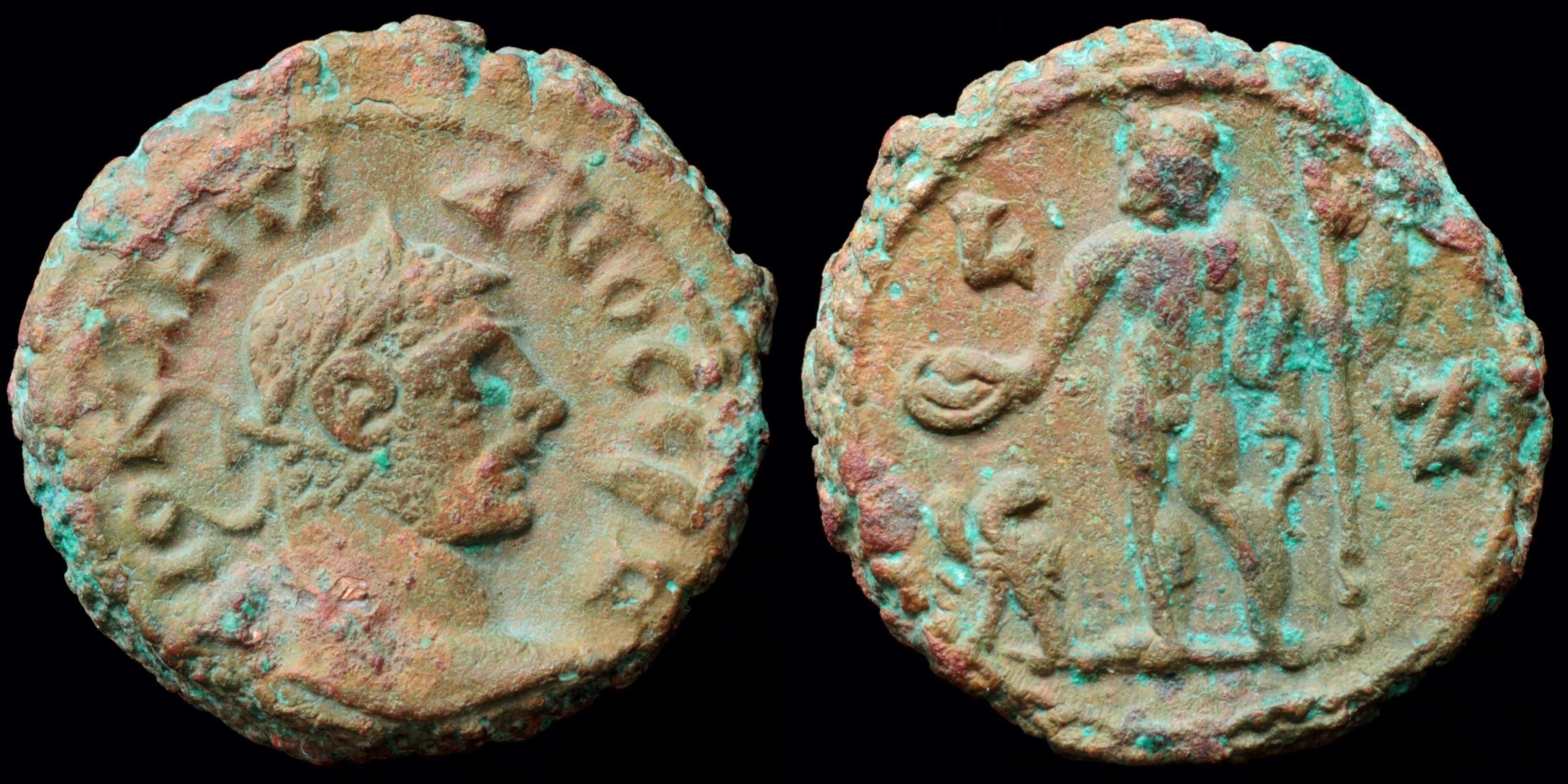
An
BL
Tetradrachm
struck 290-291 AD
in
Alexandria
Obverse: laureate head right ΔIOKΛHTI_ANOC CEB
Reverse: Zeus standing half left, wearing chalmys, holding patera and scepter. eagle at feet; L_Z
Diameter:
19 mm
Die Orientation: -
Weight: 8.2 g
Die Orientation: -
Weight: 8.2 g
29 Aug 290 - 28 Aug 291 AD
Milne 4946; Curtis 2045; BMC Alexandria p. 321, 2475; Geissen 3250; Kampmann 119.68; Emmett 4087
(5)
Maximian
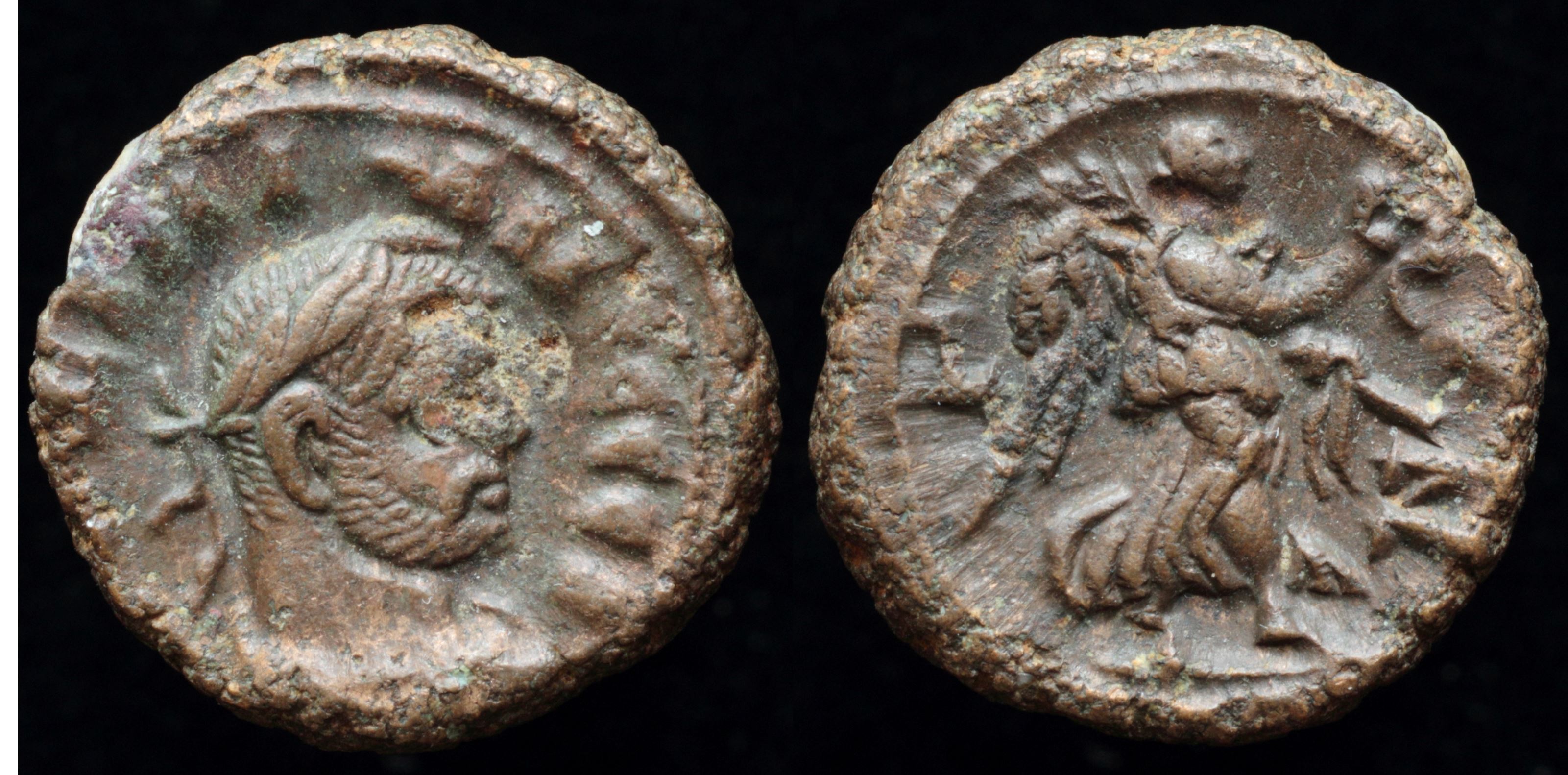
An
BL
Tetradrachm
struck 291-292 AD
in
Alexandria
Obverse: laureate, draped and cuirased bust right; MAΞIMI_ANOC CEB
Reverse: Nike with wreath and palm branch advancing right; L_* / Z
Diameter:
18.5 mm
Die Orientation: -
Weight: 7.09 g
Die Orientation: -
Weight: 7.09 g
29 Aug 291 - 28 Aug 292 AD
Milne 5031, Curtis 2101, Geissen 3319, SNG Cop 1048, BMC 2580
